SUMMARY
This is AI generated summarization, which may have errors. For context, always refer to the full article.
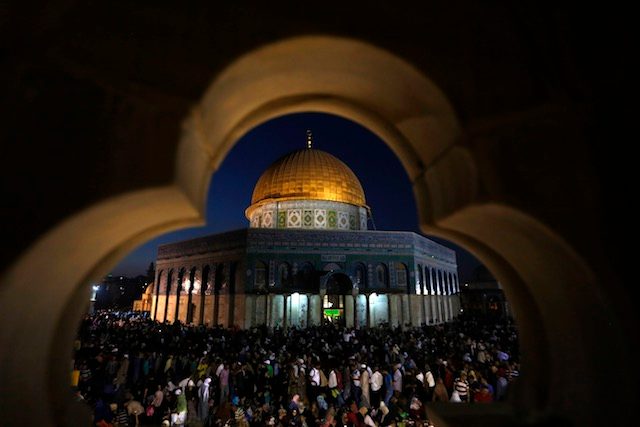
JERUSALEM (UPDATED) – Israeli police entered Jerusalem’s Al-Aqsa mosque, one of Islam’s holiest sites, as clashes erupted on Sunday, July 26, over Jews’ access to the compound on an annual day of Jewish mourning.
Palestinians threw stones and fireworks while police fired stun grenades after security forces entered the Al-Aqsa compound before briefly going inside the mosque itself.
Police said they went a few meters (yards) into the mosque to shut the doors in a bid to restore calm and lock in rioters who were inside. About 300 security personnel had entered the compound when the clashes began with a couple of hundred Palestinians, an Agence France-Presse photographer reported.
The Palestinian foreign ministry condemned Israeli authorities for allowing what they described as “provocative” visits by hardline Jews.
It was the first time Israeli security forces had entered the mosque since November, when clashes with worshippers also erupted.
There were multiple casualties and arrests surrounding the clashes, which came as Jews sought to access the mosque compound on Tisha B’av, a day commemorating the destruction in ancient times of the first and second temples.
Palestinians were angered by what they considered intrusions by Jews. Visits are allowed, but Jewish prayer at the site is prohibited.
Tensions were already high after a Jewish woman publicly made insulting comments about the Prophet Mohammed last week.
The hilltop compound in Jerusalem’s Old City, one of the biggest flashpoints in the Middle East, is the most sacred site in Judaism and Islam’s third holiest, after Mecca and Medina. Jews refer to the site as the Temple Mount.
“Masked rioters fled into the mosque and started to throw stones and blocks at police from inside Al-Aqsa mosque,” police said in a statement.
“They threw fireworks directly at police … In light of the severe confrontation and the escalating actions of the rioters and with the aim of preventing further injury to police…forces entered a number of metres (yards) inside and closed the doors to the mosque with the rioters inside, restoring order.”
‘Ready to die’
The police said that after their brief foray into the mosque, they withdrew and the area was quiet. Access to the site was later restricted.
Protests broke out in the lanes and alleyways of the Old City around the mosque, with demonstrators confronting police and chanting “Allahu Akbar” and police firing stun grenades.
Some vowed to protect Al-Aqsa, with one man saying the holy site “is in our blood.”
“We are ready to die,” Khaled Tuffaha, a 46-year-old Palestinian shop owner. “Everybody is ready to die.”
One 22-year-old Jewish religious student, carrying a Torah holy book who said he was briefly in the compound during the clashes, argued that Jews and Muslims should share access.
“One day for Jews, one day for Muslims,” said the student, Josef Maklov.
Police said that a young Jewish man attempted to enter while wearing phylacteries – small leather boxes containing sacred texts worn by Orthodox men at prayer.
When told to remove them, the man resisted and grabbed hold of railings, biting a policeman who tried to remove him before he was arrested.
At least three stone-throwers were arrested and four police were lightly wounded, authorities said. One Palestinian man was seen bleeding from the head and protesters spoke of further injuries, but details were not immediately clear.
Police reinforcements had deployed in the Old City overnight for fear of unrest as thousands of observant Jews flocked to the Western Wall for the annual prayer ceremony.
After Israeli police entered the mosque in November, Jordan – one of the very few Arab states with diplomatic relations with Israel – recalled its ambassador.
Israel seized east Jerusalem in the Six Day War of 1967 and later annexed it in a move never recognized by the international community.
Israel considers all of Jerusalem as its indivisible capital, but the Palestinians claim the eastern sector as capital of their promised state.
A handful of Jewish ultranationalist fringe groups hope to one day see a third temple built at the Temple Mount, further stoking tensions over the site. – Mike Smith, AFP / Rappler.com
Add a comment
How does this make you feel?
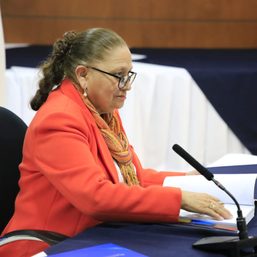
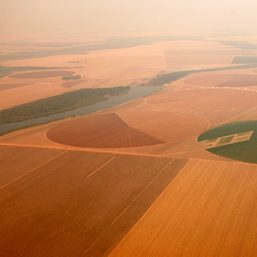
![[WATCH] Try This: Empanada Salteña from Argentina](https://www.rappler.com/tachyon/2023/04/try-this-empanada-saltena-argentina.jpg?resize=257%2C257&crop=765px%2C0px%2C1037px%2C1037px)
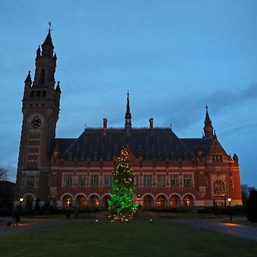
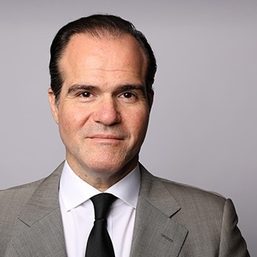
There are no comments yet. Add your comment to start the conversation.